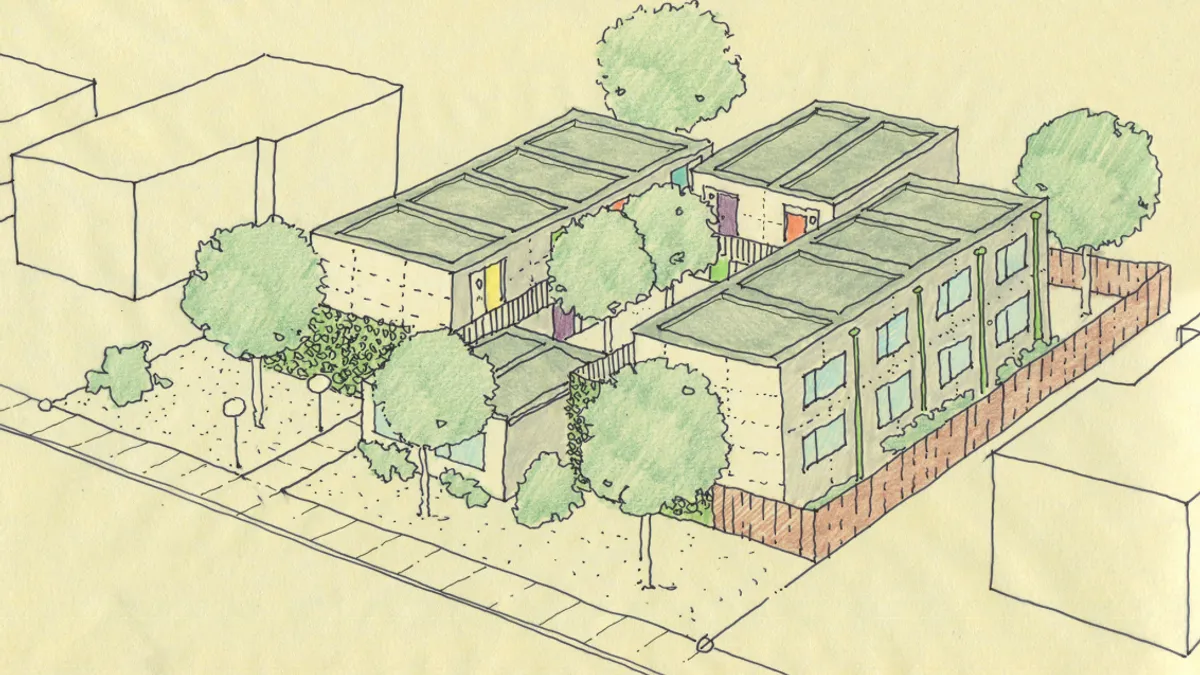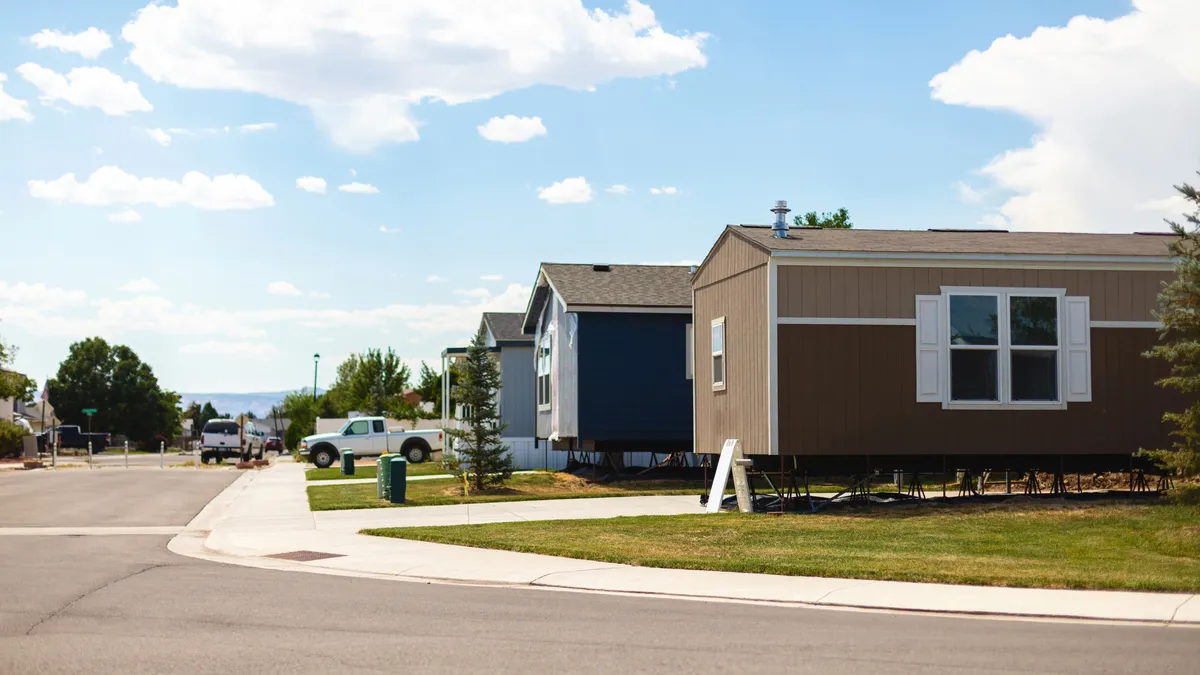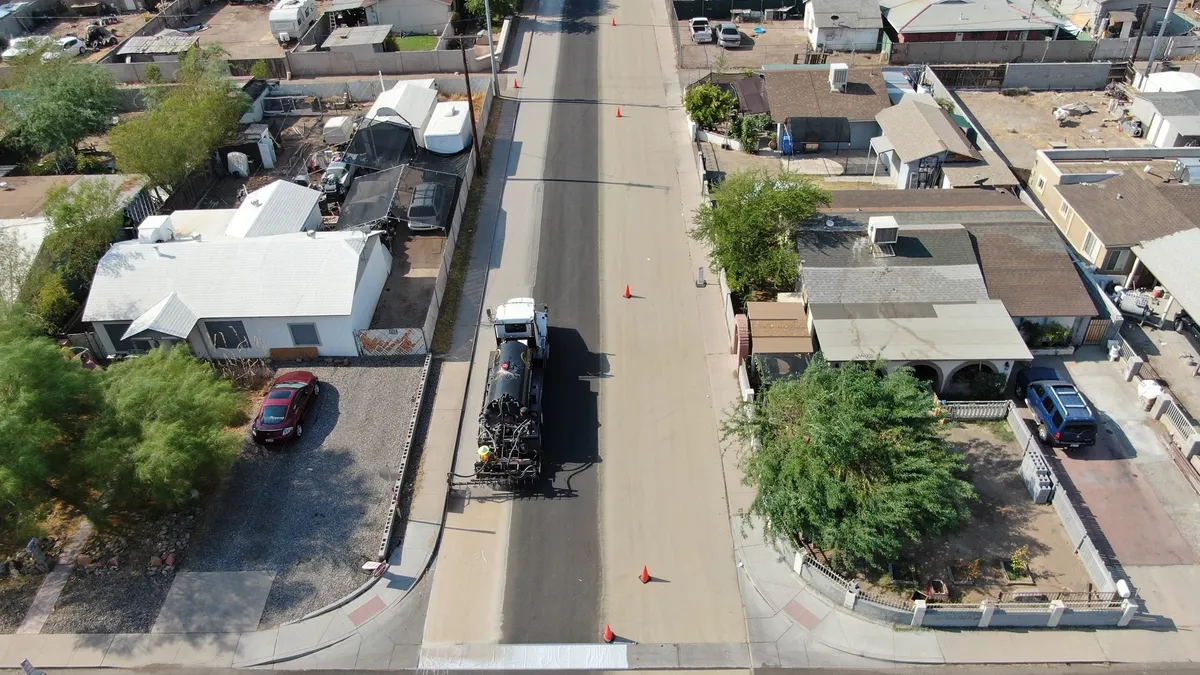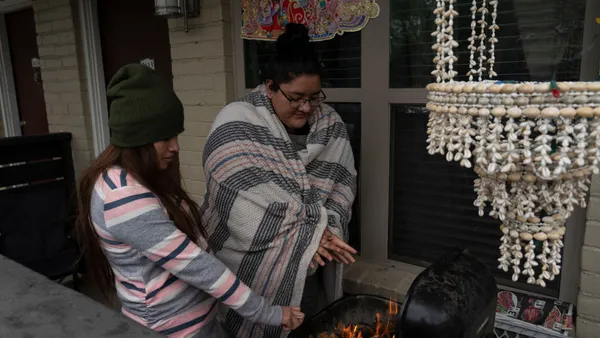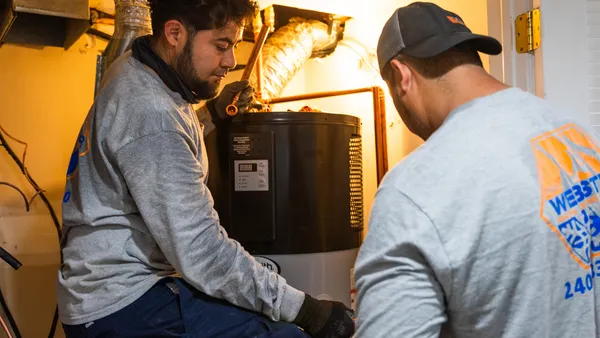Dive Brief:
- Washington's King County, of which Seattle is the county seat, announced three modular housing pilot projects worth a total of about $12 million to shelter approximately 200 people experiencing homelessness.
- The county already has ordered 29 modular housing units to accommodate about 100 homeless people for the first two pilots, which are for temporary shelter projects. The first project will be in Seattle and will house 72 people in a dormitory-style layout — nine dorm units housing eight people each — and individual storage lockers in each room. The second project location has yet to be determined, but it involves using modular housing for 20 micro units to house up to 25 individuals or couples.
- The third pilot is a collaboration with the city of Shoreline, WA for 80-100 units of permanent supportive housing. That project is still in the planning phase and a timeline has yet to be determined, while the two temporary housing projects are expected to be completed in August 2019.
Dive Insight:
Modular housing components are manufactured elsewhere and then put together at a development site, and can often be made more efficiently and economically because they are made indoors at a factory, and therefore are not subject to weather delays. They're viewed as a cheaper and faster way to construct a new development. Plus, the buildings can be disassembled and moved to other locations for reassembly.
Despite the cheap, fast construction, King County's temporary housing modular units are expected to last at least 20 years. All of these elements combine to make the concept ideal for constructing alternatives to traditional homeless shelters.
"To tackle the housing crisis, we need to explore different options to get people housed quickly. Modular housing has shown great promise, and may play a key part in our regional response," Dow Constantine, King County Executive, said in a statement.
Modular housing projects have their own challenges, as do all projects, among them the fact that Seattle and Shoreline must secure land use permits before assembling the structures. In addition, if a project falls through but some of the components already have been manufactured, the project purchaser can end up at a greater loss. It's more difficult to repurpose modular components for another project because of the customized design than, say, repurposing individual bricks or wood planks from a traditional project that was canceled.
"Modular housing has unique challenges but other regions have already seen success," King County Council Member Jeanne Kohl-Welles said in a statement. She, like other leaders, noted the importance of quickly finding viable solutions to mitigate the region's growing housing crisis and increase in homelessness.
Part of the plan for the facilities appear to be taking a more holistic approach to assisting homeless individuals, which more cities and regions are embracing. The concept involves moving past the traditional shelter-only, facilities-based model to a more services-based approach. Holistic models have been achieving greater success in transitioning people experiencing homelessness to stable, permanent housing.
If the projects are successful, leaders might choose to expand and bring modular housing for the homeless to neighboring cities.



